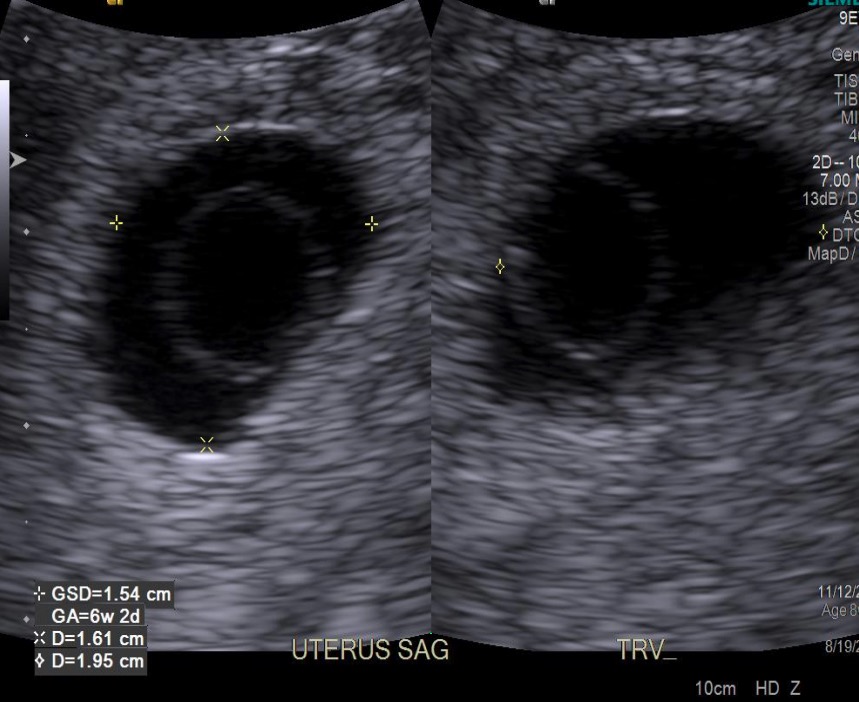Playlist
Show Playlist
Hide Playlist
Pregnancy Nutrition
-
Slides AlteredNutritionalStates Nutrition.pdf
-
Download Lecture Overview
00:01 So now let's take a look at some altered states of nutrition. 00:06 We're going to take a look at considerations during pregnancy, during older age, as well as what some types of malnutrition look like. 00:16 So first of all we visit pregnancy. 00:19 Obviously we have increased demands during pregnancy and that requires about 20% more calories on average throughout the span. 00:28 And 50% more macronutrients. 00:32 So macronutrients are essentially important here. 00:35 In the second and third trimesters we require on average about 350 to 450 additional calories. 00:44 Not so much in the first trimesters because relatively there is very little growth going on. 00:53 Now during pregnancy, clearly we have a corresponding weight gain. 00:59 So in the first trimester, we don't see so much weight gain. 01:03 Approximately 2 to 4 pounds throughout that whole 12 week period. 01:07 However, throughout the second and third trimesters, we see a fairly consistent weight gain of about a pound a week. 01:16 So, again 0.8 pound can vary person to person. 01:19 And from whichever source you read your statistics. 01:21 So down along the right hand side, you can see various distribution of what that weight gain constitutes. 01:30 We have some maternal fat stores. 01:33 Just in case those are necessary as well as a substantial amount of weight gain in the breasts and uterus as it grows with the fetus. 01:44 And breast begin to develop more milk ducts. 01:48 And then we see an increase in blood volume to supply the fetus. 01:52 And the fetuses blood itself as well as the placenta. 01:56 And a significant amount of weight in the amniotic fluid. 02:00 So weight gain during pregnancy is quite important. 02:04 Specially during the second and the third trimesters. 02:08 This is no time for a mother to be cutting out fats or going out on any kind of restrictive diet. 02:15 So, let's take a look then at the macronutrients changes that we should expect to increase in intake in pregnancy. 02:27 So protein, carbohydrate and lipid need. 02:30 So in understanding this graph, we need to understand that the green bars are representing a 100% RDA. 02:41 In this case, Recommended Daily Allowance of the particular nutrient. 02:45 So here we can see that even though the text is saying an additional 25 grams, we are going to need a 150% of what a normal female would. 02:59 So it could be confusing to look at this graph and think that it's saying that you need a 150 grams. 03:05 And it doesn't quite match up with the text but 150% of what the recommended daily allowance is which is about 25 grams more. 03:16 Again don't get wrapped in the exact numbers. 03:19 The graph does a really nice job so long as you understand what it is you're looking at. 03:23 We need to see also a proportional intake of fat. 03:28 Because we need an essential fatty acids. 03:31 We have alpha-linolenic acid and linolenic acid. 03:34 The Omega 6s and the Omega 3s respectively, Those are important for development of a healthy fetus. 03:42 In addition, we certainly need to keep our carbohydrate intake in mind. 03:50 So approximately a 170 grams, 175 grams more. 03:55 And the reason for this is in prevention of ketosis. 04:01 So we really don't want to be using fat as a primary fuel source. 04:05 Because there is evidence that suggests that the keytone bodies that are created as a byproduct of fat metabolism could lead to some issues in brain development. 04:19 So keep in mind carbohydrate intake is also important. 04:23 Not a time to be on sort of a protein only diet. 04:27 So in advising patients on nutritional changes those are some things you should consider in macronutrient intake. 04:35 So now let's look at some of the micronutrients. 04:39 When we consider our vitamin requirements, we'll notice that there is a 30% increase in most B vitamins. 04:47 And you can probably guess that we see a large increase in the intake of folate B9 because of the increased need for cell division and DNA production. 05:02 As well as about a 45% increase in vitamin B6 in order to maintain a healthy pregnancy. 05:11 Remember these are water soluble vitamins. 05:14 And so any extras are excreted in the urine. 05:18 And so we need to keep these up on a daily basis. 05:21 And this is one of the reasons that a prenatal vitamin is highly recommended. 05:26 Vitamin D intake is super important for gene expression. 05:32 And that we don't need to increase the amount really, but we definitely need to make sure that expecting mothers are getting enough sunlight or supplementing in some way in order to make sure that there's enough vitamin D and alleviate any effects of having a deficiency there. 05:51 Another fat soluble vitamin that we need to consider is vitamin A. 05:57 We really don't want to see too much of increase in vitamin A because actually in A, high amount it is actually, harmful to the developing fetus. 06:08 It has some neurotoxic effects. 06:10 So we don't want to increase vitamin A anymore than about 10%. 06:15 So that covers some of the most important increases or considerations for vitamin requirements. 06:24 On the note vitamin A, I guess I should bring up accutane treatment and such would clearly not be recommended during pregnancy. 06:31 Because that is a retinoic acid and retinol based or vitamin A based supplement. 06:39 And of course that could create excess vitamin A and thus problems. 06:44 So we take the expectant mothers off the course of those sorts of prescriptions. 06:48 Now we look at mineral requirements. 06:52 The most important things to consider are Iodine, Iron and Zinc. 06:58 As you can see in this figure. 07:00 Again to remind you, we're looking at the adult female recommended daily allowances or AI in green. 07:07 And the percentage of that, that we should be recommending to the expectant mothers. 07:15 And so we can see a 150% of the RDA for iron is recommended. 07:22 So iodine is important to support thyroid hormone synthesis and as such fetal brain development. 07:30 In addition, we must need iron because we need that for the synthesis of healthy hemoglobin. 07:37 And the fetus is developing more blood. 07:40 And as you saw in weight gains, the maternal system needs to have more blood also. 07:46 And thus more hemoglobin. 07:47 And yeah, so increase in iron. 07:51 Finally, zinc is a very important cofactor in protein synthesis. 07:56 And as a pregnant mother is growing a whole new being inside them there's definitely lot of protein being made and so an extra dosage of zinc might not be a bad idea. 08:09 And so we recommend extra zinc intake. 08:12 Again a prenatal supplement vitamin will cover all of these different micronutrients requirements. 08:19 So we should certainly recommend those.
About the Lecture
The lecture Pregnancy Nutrition by Georgina Cornwall, PhD is from the course Nutrition.
Included Quiz Questions
What is the recommended daily amount of carbohydrate consumption in a pregnant lady?
- 175 grams
- 100 grams
- 50 grams
- 20 grams
- 300 grams
Which of the following water-soluble vitamins should be taken in greater quantities during the duration of the pregnancy?
- B6
- B1
- B2
- B5
- A
Which of the following effects in the fetus can come from iodine deficiency during pregnancy?
- Mental retardation
- Neural tube defects
- Anemia
- Bleeding
- Weak bones
What amount of additional calories per day are recommended for a pregnant woman during the second and third trimesters?
- 350-450
- 100-200
- 150-250
- 500-600
- 50-150
Which mineral is required in greatest amount in pregnant women?
- Iron
- Potassium
- Phosphorus
- Calcium
- Sodium
Customer reviews
5,0 of 5 stars
| 5 Stars |
|
1 |
| 4 Stars |
|
0 |
| 3 Stars |
|
0 |
| 2 Stars |
|
0 |
| 1 Star |
|
0 |
A brief but v helpful quiz in re-freshing the concepts...it helps in our routine practices as well...




